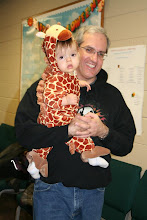I think I'm dead.
One Ring's brother got home late last night from his trip to Peru, and he was going to crash at our place, so I stayed up getting the house ready. When One Ring arrived, though, he had decided to head on home. Don't blame him, and certainly am not upset for being made to stay up and clean myself, but I am really, really tired this morning. So I'm chugging down a coke and trying to get ready for my spirituality class, which starts in about 20 minutes.
Meanwhile, I spent yesterday afternoon - after I got home from work - watching Ghost in the Shell. Awesome film, and clearly an influence for the Matrix movies (the Wachowski brothers have admitted as much).
One of the neat things about the movie is that it asks the question of what it means to be human. As most of the characters have had some sort of cybernetic augmentation, at several points they ask existentialist-type questions about the nature of their reality, such as "What is life and death to someone who theoretically could live forever?" and "Where is the soul - or ghost, which is the term used in the film - if every part of the body can be modified, removed, or changed?" It's a useful question to ask ourselves.
In my work, I deal with people who have just those issues, although they rarely ask those types of questions. One of the largest problems for returning vets from the wars in the Middle East is the incidence of traumatic brain injury (TBI). While deaths are remarkably low (just over 4,000 for a war that's lasted 5 years is pretty amazing, all things considered), the incidence of injuries that require long term care, such as TBIs, loss of limbs, spinal cord injuries, and so on, are staggeringly high.
Oftentimes, the patients will ask - in one way or another - about the nature of their person hood, their humanity, their wholeness, in light of their losses and disabilities. I've heard the same question asked from women who have had mastectomies and hysterectomies necessitated by the spread of cancers. "Am I a whole person - a woman - after all these parts of me have been removed?"
The answer I give, when it's asked of me, is "of course you are." But that doesn't make the question any less haunting.
So what is it that makes us human? What is it that makes us consider ourselves a whole person, and do we need to reassess the criteria we use to make that judgement? I think so. And I'll probably write more about this later.
For now, though, I need to run and teach my spirituality class.
Peace.
Thursday, June 12, 2008
Good Morning!
Subscribe to:
Post Comments (Atom)




No comments:
Post a Comment